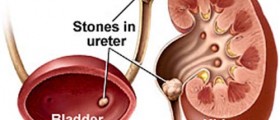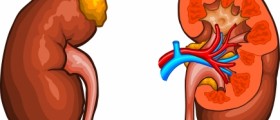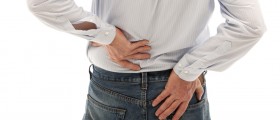
Renal calculi, better known as kidney stones or urinary stones, are a common problem related to the urinary tract. This problem affects one in every 20 people at some point in their lives, and for some it is barely noticeable, while for other it poses a significant problem, mostly due to the pain it causes.
What are kidney stones?
Kidney stones or renal calculi are solid accretions of minerals in urine. They can vary in shape and size, ranging from a pinhead to a grapefruit. They are mostly found in ureters, kidneys or bladder.
It is normal for mineral substances to accumulate in the urinary tract. In most cases, they are passed with urine with little or no problem at all. However, if they accumulate for a long time and grow in size, it may become difficult to pass them. They become a health problem and cause sharp pain in the side, in the lower back and the lower abdomen.
Symptoms of kidney stones
Kidney stones develop quite gradually and it takes time for them to become noticeable. The problem is that they are easily treated in the early stages, but they show no symptoms so the person is not aware of having them. With time, as the accumulation progresses and the stones become bigger, they start causing symptoms. The most common symptoms of kidney stones are severe pain in the flank, abdomen and groin area, burning sensation when urinating, traces of blood in urine and nausea and vomiting.
A person who has kidney stones often experiences fever with cold sweat and chills.
There is a common misconception that the pain is directly related to the size of a stone. However, the fact is that the pain depends on the location of the stone within the urinary tract.
Treatment for kidney stones
When the symptoms start, they can last for several days until the stone is passed, and then they stop. In some cases the pain is so severe that the person needs to go to the emergency room, however doctors there usually recommend taking pain killers and waiting for the stone to pass.
Another thing that is recommended for kidney stones is drinking plenty of fluids in order to keep the urine clear.
There are certain medications that some doctors prescribe to help the patient pass the stone. Alpha-blockers have been proven effective for this purpose and with only a few side effects.
In severe cases, when the stone is blocking the urinary tract or it causes insufferable pain, doctors may recommend a surgery to remove it.

















Your thoughts on this
Loading...